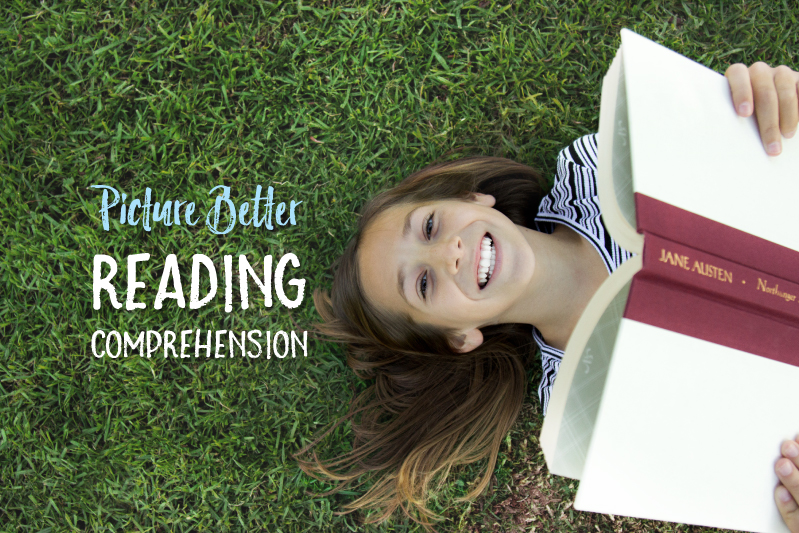
Most reading experts agree on one thing: In order to comprehend what they read, students must have strong decoding skills and adequate oral vocabulary. In other words, a child must be able to accurately decode every word on the page, and know what each of the words mean.
Unfortunately, many students who can decode well and understand words still have weak comprehension. What is the missing piece for these students?
Clinical research over the last thirty years indicates there is a separate comprehension weakness that is rarely identified. This weakness often undermines the reading process. It is a weakness, based in the sensory system, in creating an imaged gestalt or “whole.”
Students may have difficulty creating mental images for language. This weakness causes individuals to get only “parts” of information they read or hear, but not the whole.
Nanci Bell first became aware of the connection that underlies comprehension while she was teaching students struggling with literacy, many of whom had been previously diagnosed as dyslexic. Nanci has described that at the time, she was unaware of a separate comprehension dysfunction. Like many others, she thought difficulty with reading comprehension was caused by weak decoding and weak oral vocabulary.
In the following excerpt, from Visualizing and Verbalizing, Nanci Bell describes the incident that sparked her passion to change learning for students struggling with weak comprehension.
Needing a break in the lesson from spelling word after word, I decide to have Allan, [a college student majoring in architecture], read and give me a verbal summary. Handing him a college level skill book, I ask him to read aloud so I can be certain he is decoding accurately.
He accurately reads the page of material, and I take the book from him, saying, “Good job. Tell me what you read.”
Allan gives me the very complete summary, beginning with the main idea and then including all the details. To my amazement, he infers, concludes, predicts, and evaluates the material. He is confident and involved in the activity – a much different Allan than the one that struggles with spelling.
I stare at him, saying, “That was really an incredible summary. How are you able to do that?”
Looking at me, surprised and now shy, Allan replies, “I don’t know.”
Realizing that Allan seems embarrassed and unsure of himself because of my question, I reassure him. “That really was good. You have very good reading comprehension. How did you do that? If I know what you do to remember what you read, perhaps I can teach others to do it.”
Thoughtful, Allan replies, “I don’t know.” Then, after a pause, he says, “I make movies when I read.”
A little surprised, I ask, “What do you mean, you make movies when you read?”
“I don’t know. I just see movies in my head when I read. The words turn into pictures and I just remember the pictures, the images. Don’t you do that?”
Thinking about the books I’ve read, I finally answer, “Yes. I do. I picture what I read. I guess I’ve just not thought about it.”
“Do other people do that, too?”
“I don’t know … but I’ll find out …”
The statement “I make movies when I read” prompted my twenty-five-year-odyssey exploring the relationship between imagery and language. Today, twenty years after first writing Visualizing and Verbalizing for Language Comprehension and Thinking, I am still passionate about the importance of imagery to comprehension and cognition. (Bell, 2007, pp. 4-8)
Over the past 30 years more than 40,000 students have been taught how to learn to their potential at Lindamood-Bell. While some of our students have a previous diagnosis that affects learning, others seek our help to enhance their skills or to just make learning easier—and we make a difference for each one of them.
The Visualizing and Verbalizing™ program develops concept imagery—the ability to create an imagined or imaged gestalt from language—as a basis for comprehension and higher order thinking. The development of concept imagery improves reading and listening comprehension, memory, oral vocabulary, critical thinking, and writing.
A mom describes how Visualizing and Verbalizing improved her daughter’s reading comprehension:
If you have concerns about your child’s language comprehension ability, get in touch with one of our learning centres to get started: Double Bay (02) 9328 7119 | Chatswood (02) 9410 1006 | Melbourne (03) 9815 2949






